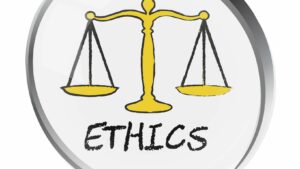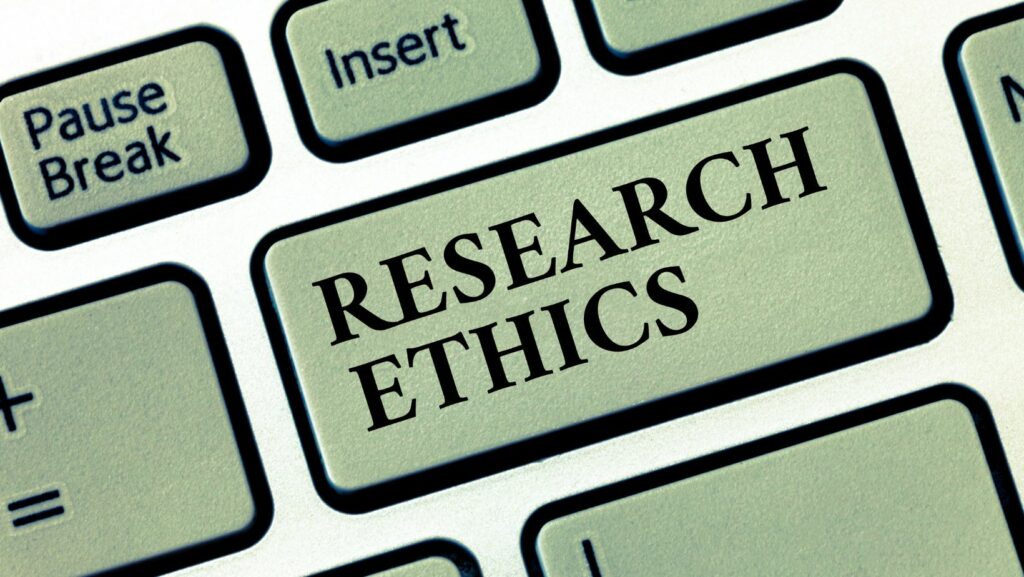Media Law and Ethics
- Understanding Media Law: Media law regulates the rights and responsibilities of content creators, addressing issues like copyright, defamation, and privacy to ensure compliance and protect individual rights.
- Ethical Principles in Journalism: Key ethical considerations in journalism include truth and accuracy, fairness and impartiality, which are vital for maintaining credibility and trust with the audience.
- Defamation Awareness: Knowledge of defamation laws is essential for journalists to protect against legal repercussions by verifying information before publication and addressing potential harm to reputations.
- Privacy Rights: Respecting privacy rights is crucial; journalists must navigate ethical dilemmas while reporting, particularly regarding private individuals or sensitive topics.
- Role of Regulatory Bodies: Regulatory agencies, like the FCC and FTC, enforce media laws and ethical standards, contributing to accountability and transparency in the media landscape.
- Navigating Digital Challenges: With the rise of social media and misinformation, media professionals must adapt to new dilemmas and uphold ethical standards while promoting responsible communication.
In today’s fast-paced digital landscape, understanding media law and ethics is more crucial than ever. As information spreads rapidly across platforms, the lines between free expression and legal boundaries often blur. Journalists, content creators, and consumers alike face the challenge of navigating these complexities while ensuring responsible communication.
Media law governs the rights and responsibilities of those who create and share content. It encompasses issues like copyright, defamation, and privacy. Meanwhile, ethics in media emphasizes the moral obligations that come with reporting and storytelling. Together, these elements shape how society consumes information and holds power accountable. By exploring the intersection of law and ethics, individuals can better appreciate the vital role they play in fostering a fair and informed public discourse.
Overview Of Media Law And Ethics
Media law encompasses the regulations and legal standards governing communication through various platforms, including print, broadcast, and digital media. These laws address essential issues, such as defamation, intellectual property, privacy rights, and freedom of speech. Understanding media law equips journalists and content creators to navigate complex legal landscapes without infringing on individual rights or societal norms.
Ethics in media refers to the moral principles guiding behavior in communication. Ethical considerations include accuracy, fairness, accountability, and transparency. Journalists are responsible for presenting factual information while minimizing harm to individuals and communities. Ethical frameworks encourage integrity in reporting and foster trust between the media and the public.
The intersection of law and ethics plays a crucial role in shaping responsible media practices. While laws provide a framework for permissible conduct, ethics elevate these standards, urging professionals to prioritize the public interest. Awareness of both aspects enables effective participation in public discourse, ultimately contributing to a well-informed society.
Key areas of focus in media law and ethics include:
- Defamation: Laws prohibit false statements that can damage an individual’s reputation. Journalists must verify information before publication to avoid liability.
- Copyright: Intellectual property laws protect original content. Understanding copyright ensures creators respect others’ works while safeguarding their own.
- Privacy: Laws protect individuals’ privacy rights from unauthorized intrusion. Ethical journalism balances reporting with respect for personal boundaries.
- Freedom of Speech: Legal protections allow expression of ideas without censorship. However, ethical journalism requires considering the impact of publishing certain content.
As the media landscape evolves, ongoing education in media law and ethics remains vital for practitioners committed to responsible communication. This knowledge fosters accountability, promotes ethical behavior, and enhances the credibility of the media industry.
Key Principles Of Media Law
Media law encompasses several fundamental principles that govern the conduct of journalists and content creators. Understanding these principles is essential for ensuring responsible media practices while promoting informed public discourse.
Defamation Laws
Defamation laws protect individuals and organizations from false statements that harm their reputation. Two primary forms exist: libel, which involves written defamation, and slander, encompassing spoken defamation. To establish a defamation claim, a plaintiff must prove that a statement is false, injurious, and unprivileged, and that the defendant acted with negligence or actual malice in publishing it. Public figures face a higher burden of proof, requiring demonstration of actual malice. Adhering to defamation laws enables journalists to report accurately without risking legal repercussions.
Privacy Rights
Privacy rights safeguard individuals from unauthorized intrusions into their personal lives. Essential components include the right to control personal information and the right to be free from unreasonable public scrutiny. Media practitioners must respect privacy boundaries, particularly when reporting on private figures, sensitive topics, or emotionally charged events. Publishing private information may lead to legal consequences unless it holds significant public interest or is relevant to a broader narrative. Understanding privacy rights helps journalists navigate ethical dilemmas while fostering trust with their audience.
Ethical Considerations In Journalism
Ethical considerations in journalism play a critical role in ensuring responsible and credible reporting. Journalists adhere to core principles that maintain the integrity of news media and foster public trust.
Truth And Accuracy
Truth and accuracy constitute foundational ethical principles in journalism. Journalists must verify facts before publication to present reliable information. Utilizing multiple sources strengthens the credibility of reported claims. When discrepancies arise, transparency is essential; journalists must correct inaccuracies promptly to uphold their commitment to truth. Failure to prioritize accuracy can lead to misinformation, eroding public trust in the media and impacting the larger discourse.
Fairness And Impartiality
Fairness and impartiality promote balanced reporting, allowing all perspectives to be represented. Journalists should strive to provide equal opportunity for subjects to share their viewpoints, ensuring a comprehensive understanding of complex issues. Avoiding favoritism or bias is crucial; reporters must remain objective, even when covering contentious topics. By promoting fairness and impartiality, journalists contribute to informed public debate and facilitate the democratic process.
The Role Of Regulatory Bodies
Regulatory bodies play a critical role in overseeing media law and ethics, ensuring compliance among media entities while safeguarding public interest. Key regulatory bodies include:
- Federal Communications Commission (FCC)
The FCC regulates interstate and international communications. It enforces laws regarding broadcasting, cable, and telecommunications, promoting competition and protecting consumers.
- Federal Trade Commission (FTC)
The FTC manages advertising practices, ensuring truthful representations in promotional materials. It addresses deceptive practices and enforces rules against misleading advertisements.
- National Public Radio (NPR) and similar organizations
NPR adheres to strict editorial standards and ethical guidelines, promoting high-quality journalism. It provides a model for accountability and transparency in public broadcasting.
- Press Councils
Many countries have press councils that serve as watchdogs for ethical journalism. They address complaints against media outlets and promote ethical standards among journalists.
- State and Local Regulatory Agencies
Various state and local agencies enforce communication laws within their jurisdictions. They address issues specific to regional media practices while ensuring adherence to broader legal standards.
Regulatory bodies often conduct investigations and impose penalties for violations, fostering a culture of accountability. They also provide educational resources and guidelines for journalists, enhancing their understanding of legal obligations and ethical standards. By promoting compliance and ethical conduct, these bodies contribute to a healthier media landscape, supporting informed public discourse.
Challenges In Media Law And Ethics
Media law and ethics face significant challenges in an ever-evolving digital landscape. Navigating these complexities requires a thorough understanding of both legal and ethical frameworks.
Digital Media Dilemmas
 Digital media poses unique dilemmas, including issues related to misinformation, intellectual property, and user-generated content. Misinformation spreads rapidly across platforms, complicating journalistic efforts to verify facts and maintain accuracy. Intellectual property concerns arise when media practices blur the lines of ownership and usage, leading to potential copyright infringement. User-generated content challenges traditional journalism by introducing questions about source credibility and responsibility. These dilemmas necessitate ongoing education and vigilance among media professionals to uphold ethical standards while complying with legal requirements.
Digital media poses unique dilemmas, including issues related to misinformation, intellectual property, and user-generated content. Misinformation spreads rapidly across platforms, complicating journalistic efforts to verify facts and maintain accuracy. Intellectual property concerns arise when media practices blur the lines of ownership and usage, leading to potential copyright infringement. User-generated content challenges traditional journalism by introducing questions about source credibility and responsibility. These dilemmas necessitate ongoing education and vigilance among media professionals to uphold ethical standards while complying with legal requirements.
Social Media Impact
Social media significantly impacts media law and ethics, altering how information is disseminated and consumed. Platforms encourage real-time reporting, which can lead to inaccuracies if journalists do not verify information swiftly. Privacy concerns emerge as individuals share personal details online, posing ethical questions about consent and representation. Social media algorithms can amplify bias, influencing public perception while raising accountability issues for both platforms and users. As these challenges grow, it’s essential for media professionals to embrace ethical guidelines, ensuring responsible communication in a digital age.
Information for the Public
Understanding media law and ethics is essential for anyone involved in journalism and content creation. As the digital landscape continues to evolve the challenges of misinformation and copyright infringement become more pronounced. Media professionals must stay informed about legal regulations while also prioritizing ethical standards that foster public trust.
The interplay between law and ethics shapes responsible media practices. By committing to accuracy fairness and accountability journalists can navigate complex issues and contribute to a more informed society. Ongoing education and awareness are crucial in this fast-paced environment ensuring that media remains a credible source of information for the public.

